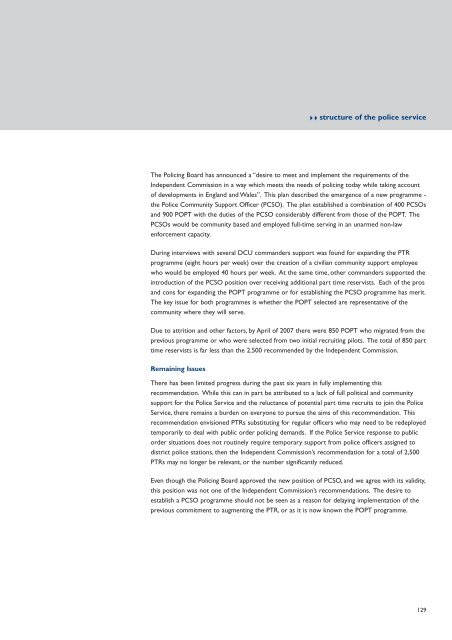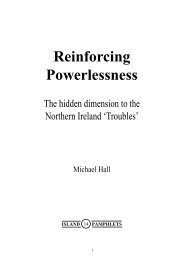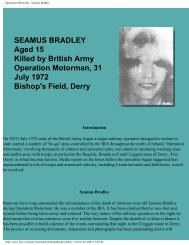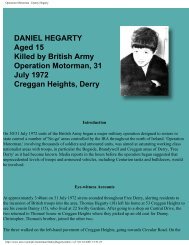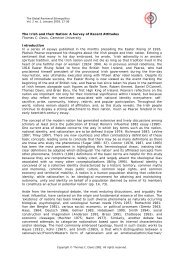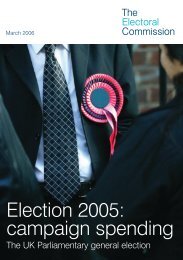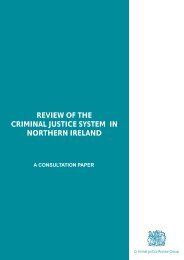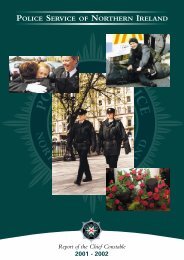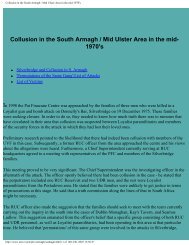11293 report 19 - CAIN - University of Ulster
11293 report 19 - CAIN - University of Ulster
11293 report 19 - CAIN - University of Ulster
You also want an ePaper? Increase the reach of your titles
YUMPU automatically turns print PDFs into web optimized ePapers that Google loves.
structure <strong>of</strong> the police serviceThe Policing Board has announced a “desire to meet and implement the requirements <strong>of</strong> theIndependent Commission in a way which meets the needs <strong>of</strong> policing today while taking account<strong>of</strong> developments in England and Wales”. This plan described the emergence <strong>of</strong> a new programme -the Police Community Support Officer (PCSO). The plan established a combination <strong>of</strong> 400 PCSOsand 900 POPT with the duties <strong>of</strong> the PCSO considerably different from those <strong>of</strong> the POPT. ThePCSOs would be community based and employed full-time serving in an unarmed non-lawenforcement capacity.During interviews with several DCU commanders support was found for expanding the PTRprogramme (eight hours per week) over the creation <strong>of</strong> a civilian community support employeewho would be employed 40 hours per week. At the same time, other commanders supported theintroduction <strong>of</strong> the PCSO position over receiving additional part time reservists. Each <strong>of</strong> the prosand cons for expanding the POPT programme or for establishing the PCSO programme has merit.The key issue for both programmes is whether the POPT selected are representative <strong>of</strong> thecommunity where they will serve.Due to attrition and other factors, by April <strong>of</strong> 2007 there were 850 POPT who migrated from theprevious programme or who were selected from two initial recruiting pilots. The total <strong>of</strong> 850 parttime reservists is far less than the 2,500 recommended by the Independent Commission.Remaining IssuesThere has been limited progress during the past six years in fully implementing thisrecommendation. While this can in part be attributed to a lack <strong>of</strong> full political and communitysupport for the Police Service and the reluctance <strong>of</strong> potential part time recruits to join the PoliceService, there remains a burden on everyone to pursue the aims <strong>of</strong> this recommendation. Thisrecommendation envisioned PTRs substituting for regular <strong>of</strong>ficers who may need to be redeployedtemporarily to deal with public order policing demands. If the Police Service response to publicorder situations does not routinely require temporary support from police <strong>of</strong>ficers assigned todistrict police stations, then the Independent Commission’s recommendation for a total <strong>of</strong> 2,500PTRs may no longer be relevant, or the number significantly reduced.Even though the Policing Board approved the new position <strong>of</strong> PCSO, and we agree with its validity,this position was not one <strong>of</strong> the Independent Commission’s recommendations. The desire toestablish a PCSO programme should not be seen as a reason for delaying implementation <strong>of</strong> theprevious commitment to augmenting the PTR, or as it is now known the POPT programme.129


